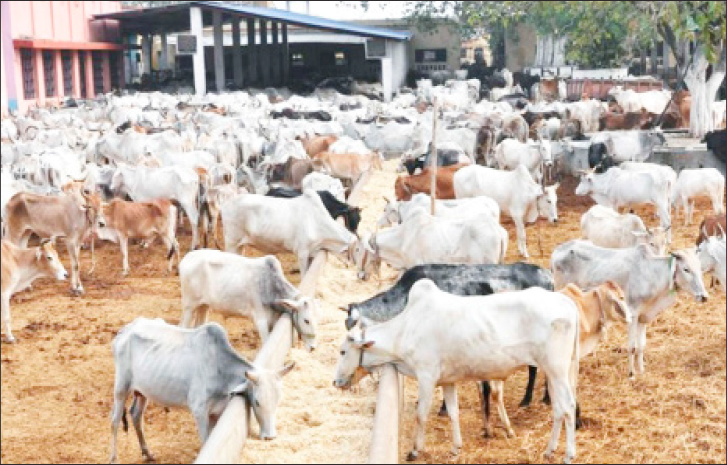Benue, Adamawa, Kaduna, Nasarawa, Plateau, Taraba and Zamfara are to benefit from the Federal Government’s ranch programmes under the National Livestock Transformation Plan.
This is contained in the NLTP 2019-2028 document approved by the National Economic Council and obtained in Abuja on Friday.
The document revealed that four categories of ranches – small, intermediate, medium and large – would be developed and tested in each grazing reserve in the states.
The programme will establish 119 ranches in various states between 2019 and 2028.
According to the document, about 300,000 jobs are to be created within phase one in the first three years.
It said, “In the pilot period, there will be two pilot sites per state, consisting of four ranches per site. Overall, a total of seven breeder ranches, 56 ranches and seven semen banks are initially envisaged among the seven pilot states.
“Between 150,000 – 200,000, plus over 92,000 cattle raised in clusters in the seven pilot states will increase the number of improved high-yielding local dairy cows. Over the 10-year period, the number of ranches envisaged at this point would be 112, plus seven breeder ranches totalling 119.”
The document, explained that the livestock programme would initially develop pilot ranches in grazing reserves in each of the seven pilot states.
“The implementation plan can also be adopted by other interested states,” the National Executive Council stated in the document.
The government explained that the economic activities involved in building and maintaining ranch infrastructure, production of livestock and feedstock, as well as related upstream and downstream support services and value addition, would provide opportunities for employment and human capacity development, especially in rural communities.
It said, “By the end of the third year (Phase 1), these activities alone would have created more than a third of a million jobs, with over 500 pastoralists linked to market-led value chains.
“The ranches will provide opportunities for the emergence of market-driven agro-pastoralists and linking to markets through quality improvement and standards. By the end of the plan period in 2028, job growth will rise to more than two million.”
According to the document, “the mix of jobs to be created will largely be a mix of technical roles (veterinarians, plant operators), unskilled workers (farmhands, feedlot hands), and farm managers.”









